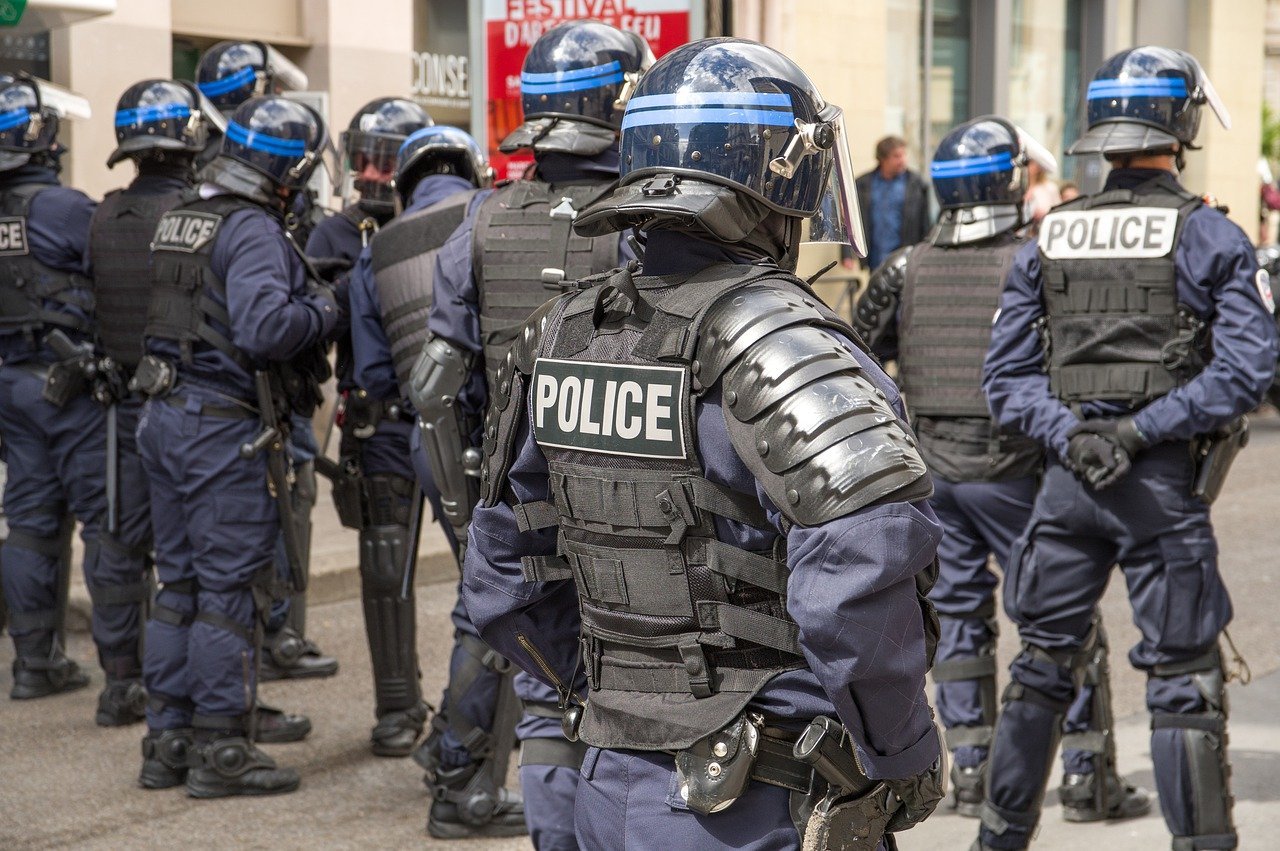FRANCE – Encirclement maneuver, accreditation of journalists: The State Council annuls several points of the law enforcement plan
‘- Unofficial translation of press release by the French State Council, published on 10 June 2021, available here.
The State Council, seized by several associations and trade unions, has ruled that several points of the 16 September 2020 policing plan are illegal. In the absence of sufficiently precise conditions, the possibility of using encirclement of demonstrators was annulled. The Council of State also annulled certain rules concerning journalists: the obligation to move away in the event of a dispersal order and to have accreditation to access information in real time, or the conditions for wearing protective equipment.
On 16 September 2020, the Minister of the Interior published the national policing plan. This document defines the framework for the exercise of policing, applicable to all demonstrations taking place on the national territory and for all law enforcement agencies. Several associations and trade unions – including the CGT, the Ligue des droits de l’Homme, the Syndicat de la magistrature and the Syndicat National des Journalistes – applied to the Council of State to request the cancellation of several parts of this document.
Today, the Council of State annulled four points of the national plan concerning the encirclement of demonstrators and certain rules applicable to journalists.
In the absence of precise conditions, the encirclement of demonstrators is illegal
The encirclement of a group of demonstrators is provided for in the national scheme for the purpose of control, questioning or preventing further public order disturbances. While this technique may be necessary in certain specific circumstances, it is likely to significantly affect the freedom to demonstrate and infringe on the freedom to come and go. However, the text does not specify the cases in which it would be recommended to use it. The Council of State annulled this point because there was no guarantee that its use was appropriate, necessary and proportionate to the circumstances.
Journalists do not have to leave the scene when a crowd has dispersed
Another point annulled by the Council of State was the obligation for journalists to obey police or military orders to disperse by positioning themselves outside the demonstrators being dispersed.
According to the Penal Code, it is an offence to voluntarily continue to participate in an assembly after an order to disperse. However, journalists must be able to continue to exercise their freedom of information, even when a demonstration has dispersed. They cannot therefore be required to leave the scene, provided that they position themselves in such a way that they cannot be confused with the demonstrators or obstruct law enforcement actions. The same applies to independent observers.
The Minister of the Interior may not impose conditions on the wearing of protective clothing by journalists
The document also states that journalists may wear protective equipment if their “identification is confirmed” and their behaviour is “free of any offence or provocation”.
The State Council considers that this paragraph goes beyond the Penal Code and sets out in ambiguous and imprecise terms conditions for the wearing of protective equipment by journalists during demonstrations. It is not for the Minister of the Interior, in a directive aimed at regulating the action of police forces in maintaining law and order, to lay down this type of rule for journalists or for any other person participating in or attending a demonstration.
The information channel dedicated to journalists cannot be reserved only for “accredited” journalists only
Finally, the State Council annulled the obligation for journalists to be accredited by the authorities in order to access the dedicated exchange channel that may be set up by the forces of order during demonstrations.
It notes that this system allows some journalists to obtain more precise or complete information in real time on the progress of a demonstration, without undermining the principles of freedom of expression, communication and equality between journalists. Moreover, given the operational constraints of the police during demonstrations, and in the absence of other justifications provided for by the law, it is also possible to limit access to this information system to journalists holding a press card.
However, the Council of State notes that when the national scheme reserves this dedicated system for journalists “accredited to the authorities”, it does not specify the scope, conditions or procedures for obtaining such accreditation. This vague wording, which is likely to lead to discretionary choices, disproportionately affects the freedom of the press.
Read the decision n ° 444849
Read the press release in PDF format

